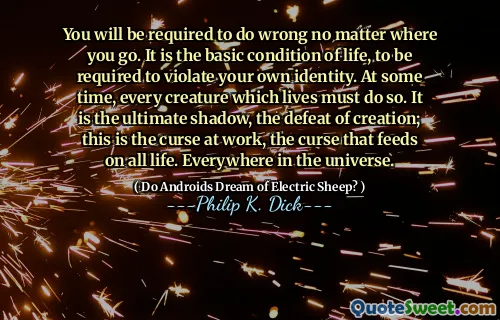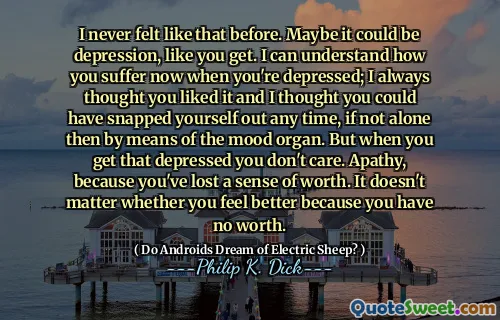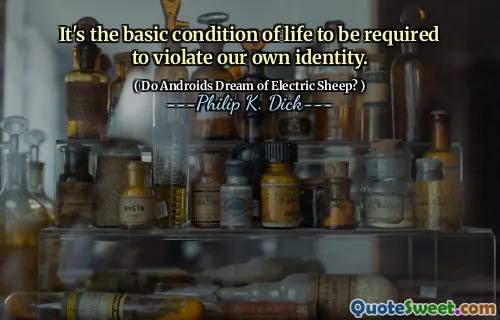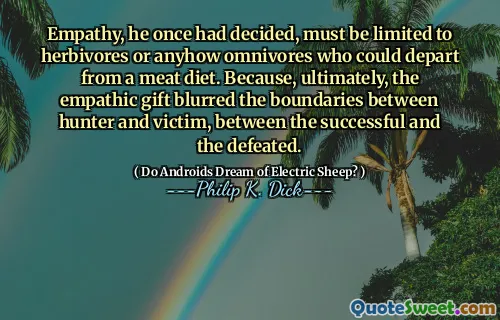
Yet, the dark fire waned: the life force oozed out of her, as he had so often witnessed before with other androids. The classic resignation. Mechanical, intellectual acceptance of that which a genuine organism - with two billion years of the pressure to live and evolve hagriding it - could never have reconciled itself to.
In Philip K. Dick's "Do Androids Dream of Electric Sheep?", the scene captures the moment an android exhibits signs of fading life, illustrating a poignant contrast between artificial beings and living organisms. The reference to the "dark fire" waning symbolizes the diminishing spark of life within the android, reflecting a mechanical acceptance of its fate. This scene resonates with the repeated experiences the observer has had with similar androids, emphasizing a certain resignation that distinguishes them from the instinctual struggle for survival seen in organic life forms.
This resignation highlights a fundamental difference between androids and living beings. While the latter possess an inherent drive to survive, shaped over billions of years of evolution, the android's acceptance of its end signifies a lack of true emotional depth. It raises profound questions about existence and the nature of consciousness, suggesting that despite their complex designs, androids can only emulate the human experience rather than truly grasp its essence.











